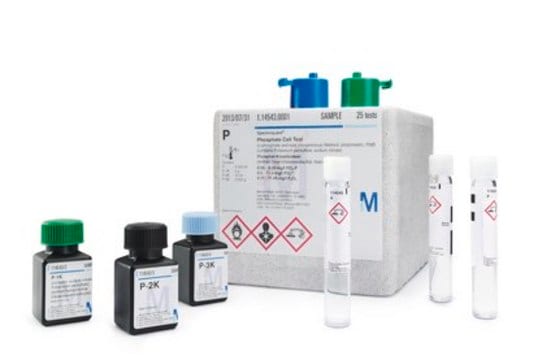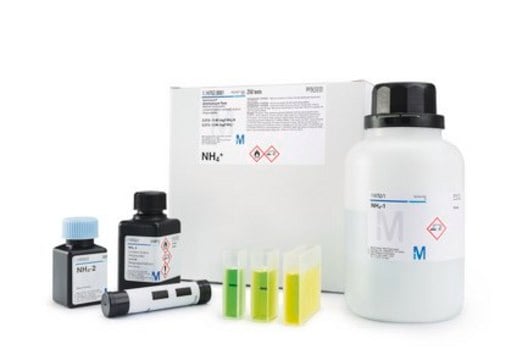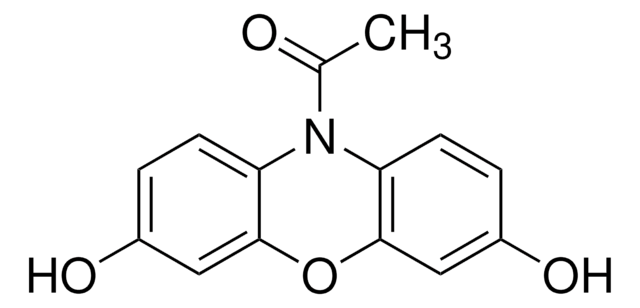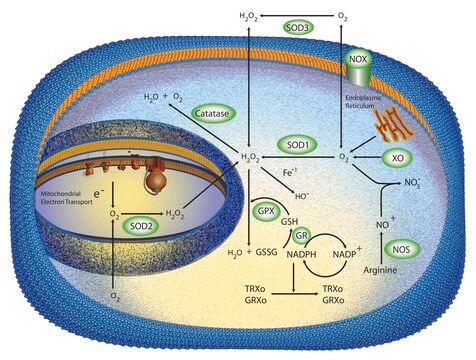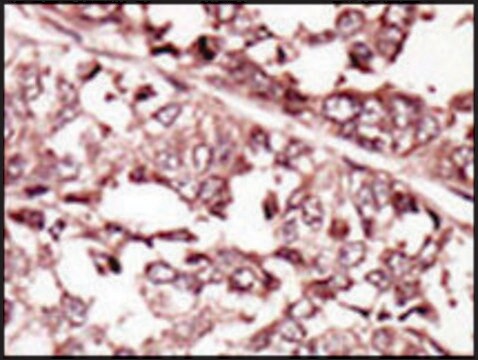Wszystkie zdjęcia(2)
Key Documents
MAK164
Intracellular Hydrogen Peroxide Assay
sufficient for 200 fluorometric tests (green fluorescence)
Synonim(y):
Hydrogen Peroxide Detection in Cells
Zaloguj sięWyświetlanie cen organizacyjnych i kontraktowych
About This Item
Polecane produkty
zastosowanie
sufficient for 200 fluorometric tests (green fluorescence)
metoda wykrywania
fluorometric
powiązane choroby
aging/geriatric diseases; neurological disorders; pulmonary disorders; orthopedic diseases; cardiovascular diseases
temp. przechowywania
−20°C
Opis ogólny
Hydrogen peroxide, a reactive oxygen species produced through the metabolism of molecular oxygen, serves as both an intracellular signaling messenger and a source of oxidative stress. Hydrogen peroxide is generated in cells via multiple mechanisms such as the NOX-mediated ROS production by neutrophils and macrophages (respiratory burst) or by the dismutase of superoxide anions produced as a result of electron leak during mitochondrial respiration. Abnormal hydrogen peroxide production contributes to oxidative cell damage and the progression of diseases such as asthma, atherosclerosis, osteoporosis, and neurodegeneration.
Zastosowanie
Intracellular hydrogen peroxide assay kit has been used to measure intracellular hydrogen peroxide levels.
Cechy i korzyści
Compatible with high-throughput handling systems.
Przydatność
This kit is suitable for the detection of hydrogen peroxide in living cells and a variety of samples such as cell extracts and liquids.
Zasada
The Intracellular Hydrogen Peroxide Assay Kit provides a simple and reproducible method to quantify hydrogen peroxide levels in living cells and in a variety of other samples such as cellular extracts. This kit utilizes a unique cell-permeable sensor that generates a fluorescent product (λex = 490/λem = 520 nm) after reaction with hydrogen peroxide that can be analyzed by a fluorescent microplate reader, flow cytometer, or fluorescent microscope.
This page may contain text that has been machine translated.
Kod klasy składowania
10 - Combustible liquids
Klasa zagrożenia wodnego (WGK)
WGK 3
Certyfikaty analizy (CoA)
Poszukaj Certyfikaty analizy (CoA), wpisując numer partii/serii produktów. Numery serii i partii można znaleźć na etykiecie produktu po słowach „seria” lub „partia”.
Masz już ten produkt?
Dokumenty związane z niedawno zakupionymi produktami zostały zamieszczone w Bibliotece dokumentów.
Klienci oglądali również te produkty
Evidence of oxidative stress and mitochondrial dysfunction in spinocerebellar ataxia type 2 (SCA2) patient fibroblasts: effect of coenzyme Q10 supplementation on these parameters.
Cornelius N, et al.
Mitochondrion, 34, 103-114 (2017)
Emily A Teslow et al.
Molecular oncology, 13(4), 894-908 (2019-01-13)
Obesity is a risk factor for triple-negative breast cancer (TNBC) incidence and poor outcomes, but the underlying molecular biology remains unknown. We previously identified in TNBC cell cultures that expression of epigenetic reader methyl-CpG-binding domain protein 2 (MBD2), specifically the
Maqusood Ahamed et al.
International journal of nanomedicine, 16, 89-104 (2021-01-16)
Therapeutic selectivity and drug resistance are critical issues in cancer therapy. Currently, zinc oxide nanoparticles (ZnO NPs) hold considerable promise to tackle this problem due to their tunable physicochemical properties. This work was designed to prepare SnO2-doped ZnO NPs/reduced graphene
Robert B Rosenblatt et al.
Theranostics, 11(2), 602-613 (2021-01-05)
Mechanical forces from non-ablative pulsed focused ultrasound (pFUS) generate pro-inflammatory tumor microenvironments (TME), marked by increased cytokines, chemokines, and trophic factors, as well as immune cell infiltration and reduced tumor growth. pFUS also causes DNA damage within tumors, which is
Nanna Cornelius et al.
Mitochondrion, 34, 103-114 (2017-03-07)
Spinocerebellar ataxia type 2 (SCA2) is a rare neurodegenerative disorder caused by a CAG repeat expansion in the ataxin-2 gene. We show increased oxidative stress, abnormalities in the antioxidant system, changes in complexes involved in oxidative phosphorylation and changes in
Nasz zespół naukowców ma doświadczenie we wszystkich obszarach badań, w tym w naukach przyrodniczych, materiałoznawstwie, syntezie chemicznej, chromatografii, analityce i wielu innych dziedzinach.
Skontaktuj się z zespołem ds. pomocy technicznej
